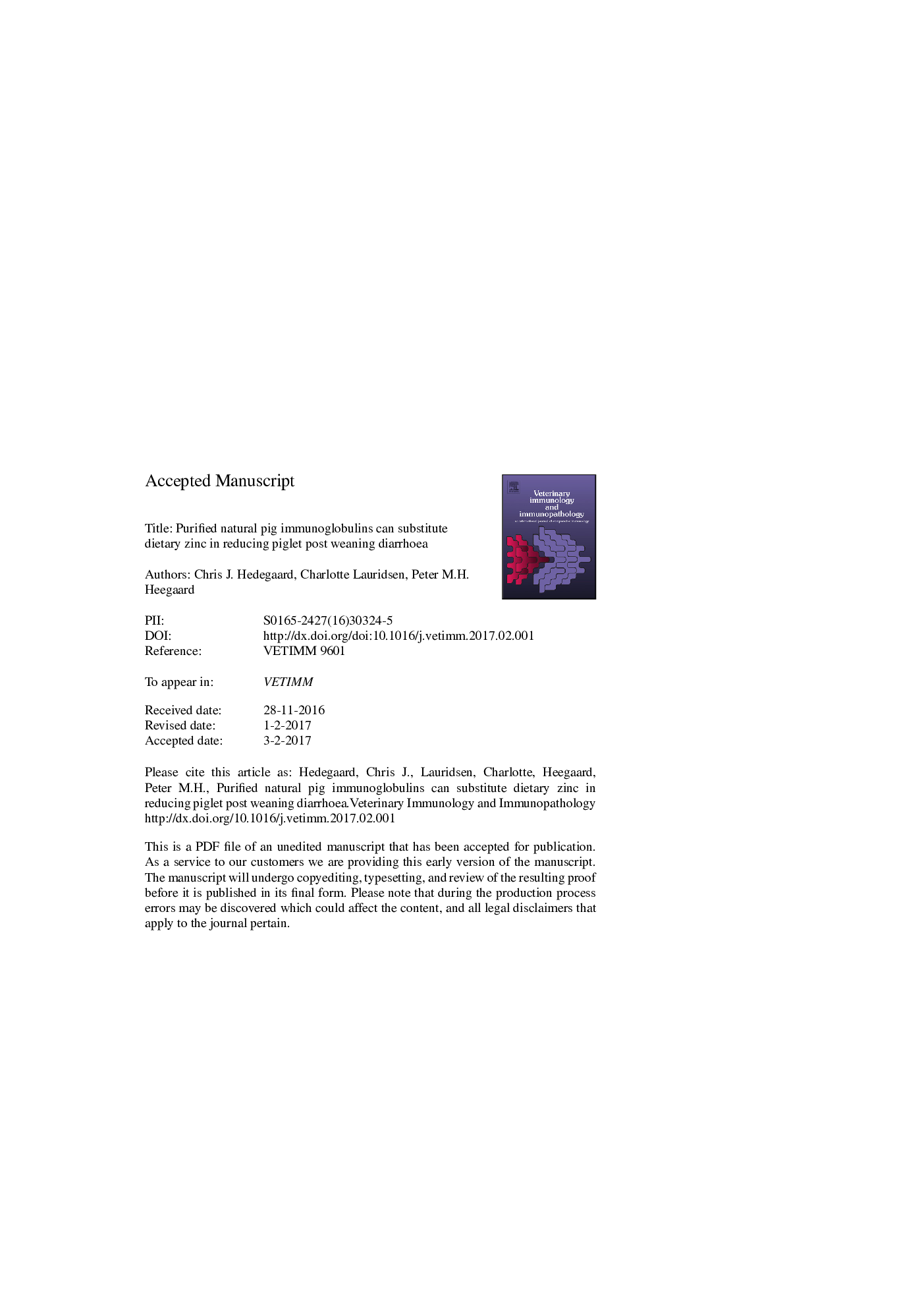| Article ID | Journal | Published Year | Pages | File Type |
|---|---|---|---|---|
| 5544744 | Veterinary Immunology and Immunopathology | 2017 | 21 Pages |
Abstract
Enteric infectious disease in weaner piglets, including postweaning diarrhoea (PWD), are usually treated and/or prevented with antibiotics and/or zinc oxide in the piglet feed. However extensive use of antibiotics and zinc oxide in intensive animal production is unwanted as it may promote microbial antibiotic resistance and pose environmental problems. Recently, in an experimental model of PWD, we observed that oral administration of purified porcine immunoglobulin G (ppIgG) from pooled natural pig plasma could reduce enteric infection. In the present study we were able to reproduce these results as it was observed that oral ppIgG accelerated clearance of faecal haemolytic bacteria in pigs challenged with E. coli in comparison with pigs not receiving ppIgG. This effect was observed upon feeding ppIgG for seven days postweaning suggesting that ppIgG does not have to be used prophylactically for several days preweaning. Furthermore, the effect of oral administration of ppIgG for seven days postweaning was equal to or better than that of dietary zinc oxide in reducing diarrhoea symptoms and in clearing faecal haemolytic bacteria for 14Â days postweaning. These observations warrant future trials of dietary ppIgG in intensive swine production units to establish its performance as an alternative to dietary antibiotics and zinc oxide for preventing PWD.
Related Topics
Life Sciences
Agricultural and Biological Sciences
Animal Science and Zoology
Authors
Chris J. Hedegaard, Charlotte Lauridsen, Peter M.H. Heegaard,
